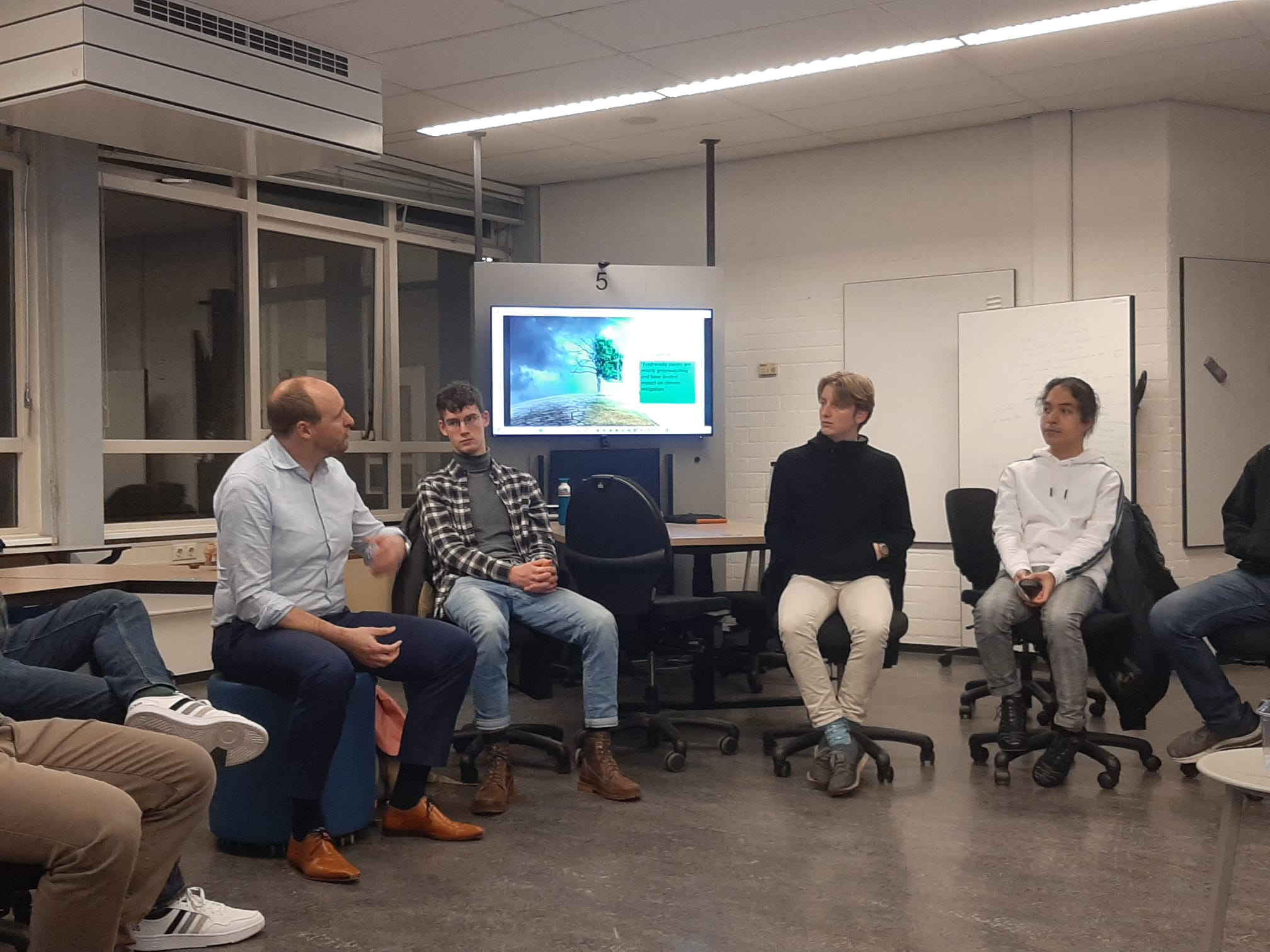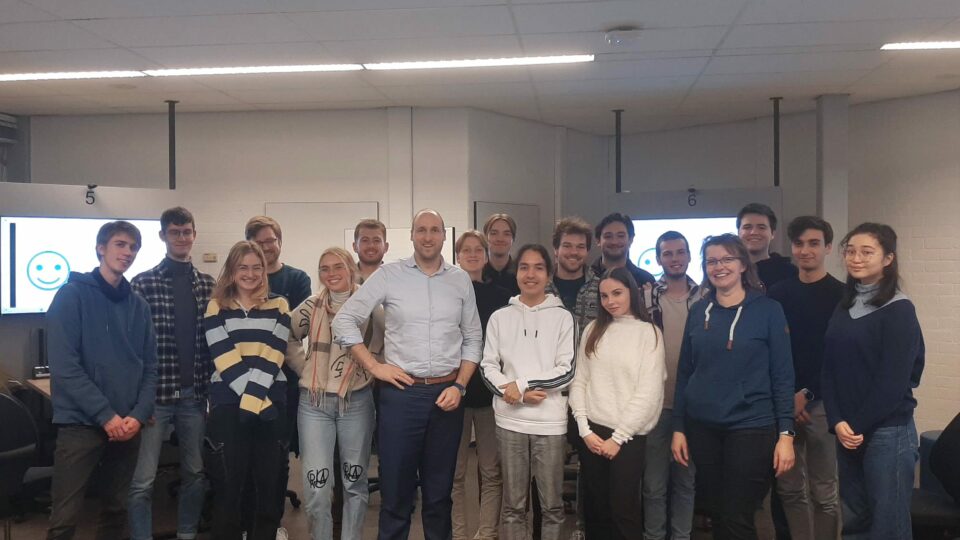On the 11th of January, both the bachelors and master’s students participating in the Da Vinci program, along with the dedicated members of the teaching team, came together to gain a new perspective on sustainability. We had the honours to welcome Wijnand Bruinsma, Director of sustainability in AkzoNobel. There were three topics discussed in the College Tour and Wijnand Bruinsma enlightened us with his view on these dilemmas that he faces every day. The topics included the trade-off between durability and sustainability trade, greenwashing, and sustainable transportation
Star of the evening
Wijnand Bruinsma graduated in Industrial Engineering and Management Science from Eindhoven University of Technology. He joined AkzoNobel in 2015 and started working in sustainability in 2019. AkzoNobel is a multinational Dutch company that is specialized in paintings. It is the 3rd largest paint and coatings company in the world. AkzoNobel is innovation-driven, especially related to sustainability. Currently, 40% of revenues come from sustainable products. Wijnand Bruinsma now leads the company’s sustainability agenda, by undertaking the development, implementation, and positioning of AkzoNobel sustainable strategy. His presence at the event added a significant layer of expertise and insight.

The event
Guided by the event hosts, Marit Oostenbrink, Akay Osman, Marnix Mulder and Inés Otero, students delved into a discussion, structured by three questions, that encouraged them to consider economical, sustainability, and social motivations that are of importance in crucial dilemmas that AkzoNobel faces. The students listened attentively to Wijnand Bruinsma’s insights, gaining a deeper understanding of the underlying concepts that influence the shaping of a sustainable future of a multinational. If every company would follow the three key global topics: climate change; circularity; health and well-being; that are identified by AkzoNobel and to which they have made a commitment to future generations that they will do everything they can to address them, the future would be a bit brighter.
This article has been written by Job Canoij, Da Vinci Project 2023-2024 student

